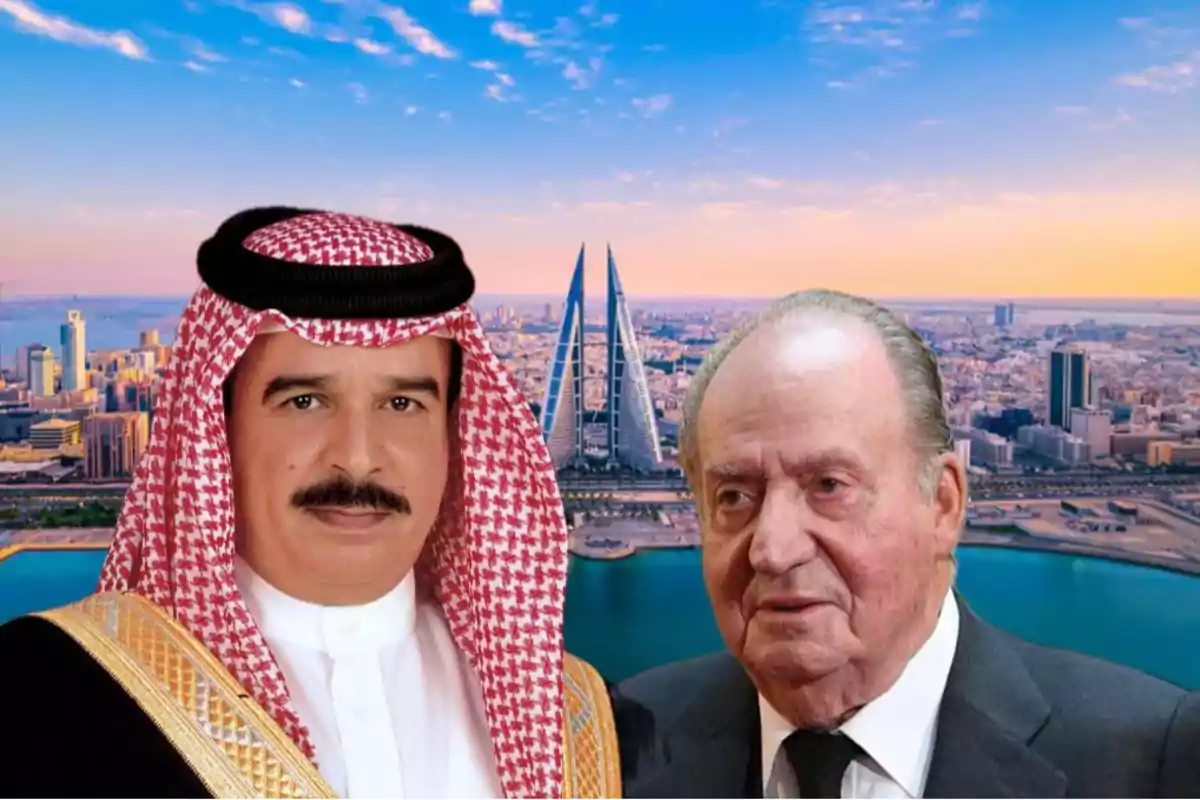
What's behind Al Khalifa of Bahrain, the king who showers Juan Carlos I with gifts?
This 75-year-old Arab sheikh 'protects' the Emeritus in the Middle East, to whom he allegedly gifted 1.9 million in a briefcase
The Emeritus's circle in the Middle East and the Persian Gulf has been much talked about in recent weeks. One of the most prominent is Hamad bin Isa al Khalifa (75), king (ex-sultan) of Bahrain. He is one of the closest friends to the Emeritus in his new stage in exile. Leading a small but strategic island kingdom, Hamad has established himself as a key figure of power in the region.
Different experts define his government as a mix of political authoritarianism, millionaire businesses, and a network of international alliances. A network in which Spain has a prominent place.
The friendship between Al Khalifa and Juan Carlos I was forged during their respective reigns. However, it was consolidated after the Spanish monarch's abdication. The king of Bahrain has received the Emeritus on numerous occasions as a guest of honor. They have often been seen together in private visits, cultural events, and sports events like the Formula 1 Grand Prix.
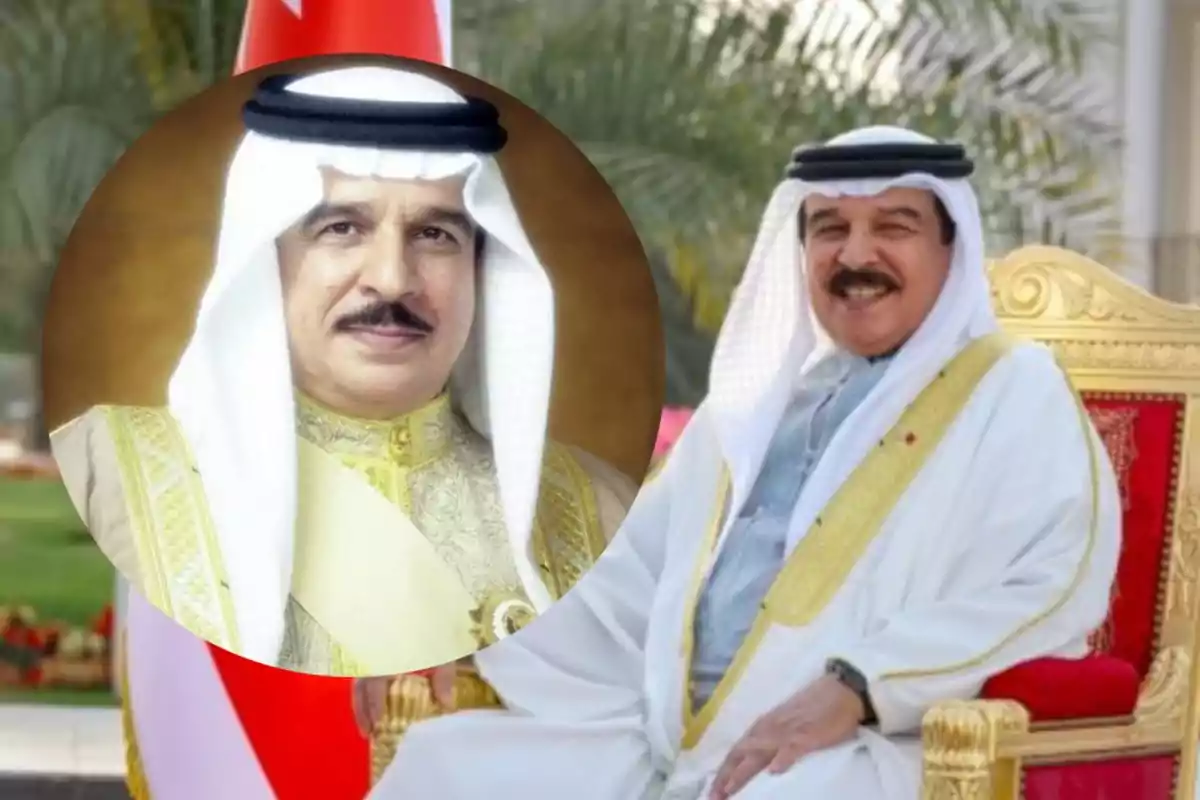
With an estimated fortune of over 3 billion dollars, their friendship has included gifts of all kinds. For example, the briefcase with 1.9 million dollars in cash personally delivered to Juan Carlos in 2010. This was revealed by Arturo Fasana, his financial manager, in a judicial investigation in Switzerland.
The relationship between the Arab king and the emeritus has remained strong over time. Thus making Hamad one of Juan Carlos I's most loyal allies in the Gulf region.
Hamad bin Isa al Khalifa was born in 1950 in Riffa, Bahrain, within the Sunni royal family that has ruled the country since the 18th century. Trained in British and American military academies, he took control of the Bahraini army at a young age and became emir in 1999 after his father's death. In his early years as a leader, he promised democratic reforms and approved a new constitution that transformed the country into a constitutional monarchy. In 2002 he proclaimed himself king.
However, over time, the initial openness gave way to increasing authoritarianism. Power was concentrated in the figure of the monarch, who appoints the government and controls all the levers of the state. Tensions with the country's Shia majority escalated until culminating in the Arab Spring of 2011.
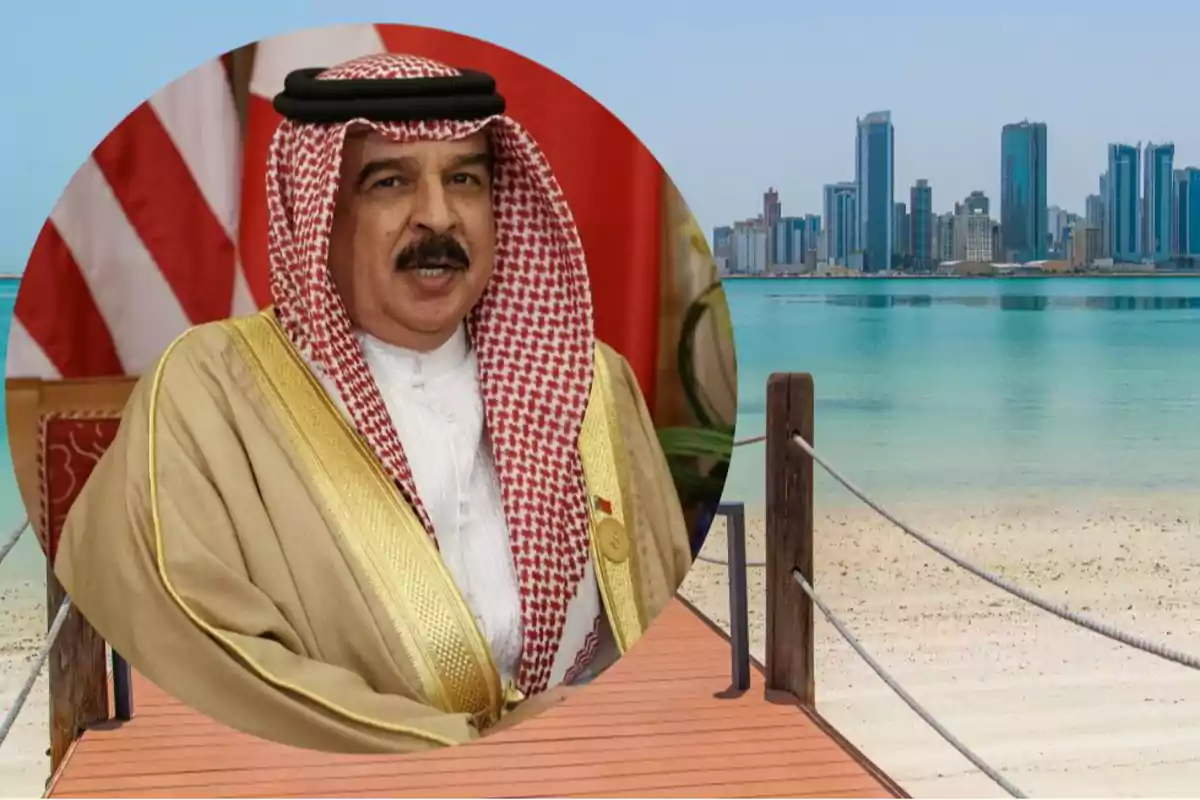
Thousands of protesters took to the streets to demand more rights and democracy. The response was forceful: repression, detentions, torture, and the military intervention of Saudi Arabia and the United Arab Emirates to support Hamad's regime.
Despite international criticism, Hamad has maintained a close relationship with Western allies like the United States and the United Kingdom, countries that have military bases in Bahrain. Additionally, he has promoted economic reforms to diversify the oil economy, promoting the financial sector, logistics, and top-level tourism. It is through these agreements that Bahrain has hosted events like the Formula 1 Grand Prix and diplomatic forums.
In 2020, Bahrain became one of the first Arab countries to normalize diplomatic relations with Israel under the Abraham Accords. This represented a significant geostrategic shift and a demonstration of the king's diplomatic pragmatism. This move, backed by the U.S., further strengthened his image as a reliable partner in the region.
Hamad bin Isa al Khalifa's businesses and fortune
Hamad bin Isa al Khalifa also stands out as a businessman, with investments inside and outside Bahrain. According to various investigations, the sultan controls multimillion-dollar assets through private companies, sovereign funds, and investment structures. One of the most mentioned conglomerates is The Premier Group, linked to the royal family. This fund is said to have managed top-level real estate investments in London, Dubai, and Southeast Asia.
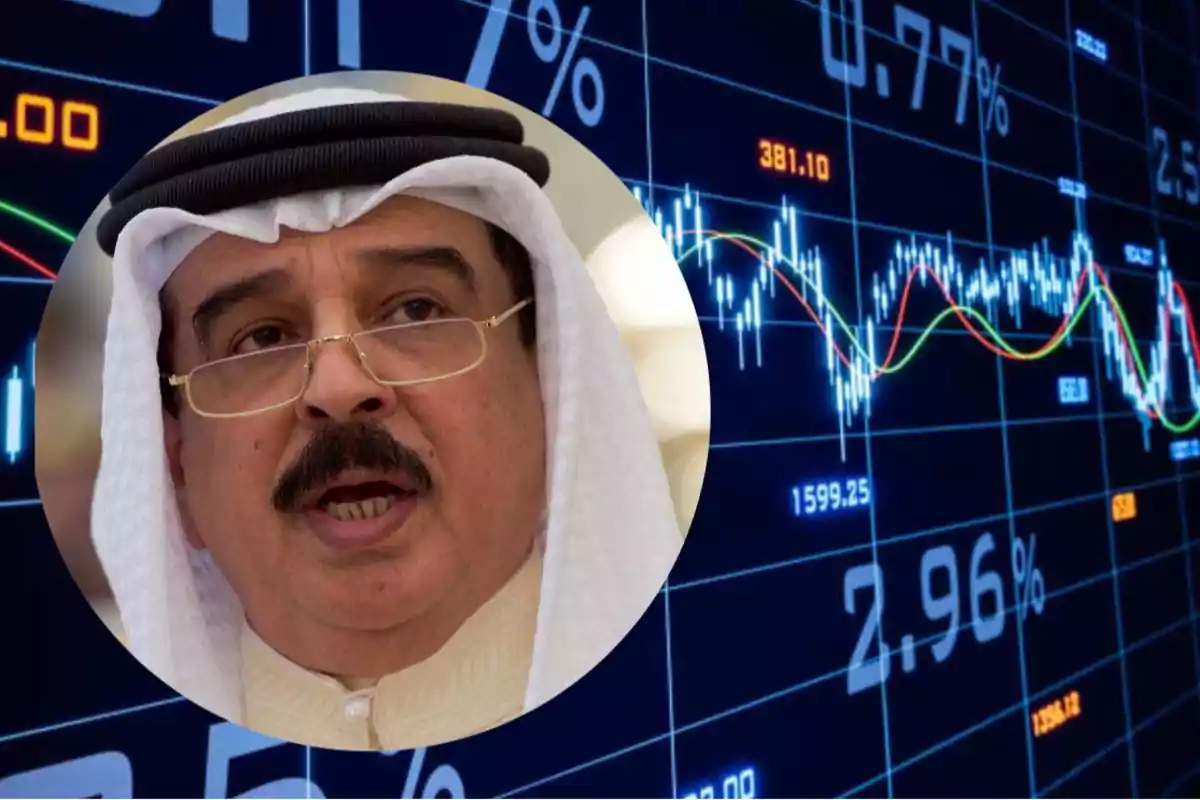
In Bahrain, the line between public and private has been blurred. Projects like the expansion of the Bahrain International Airport, the modernization of the BAPCO refinery, or the development of the artificial island Diyar al Muharraq have been awarded to companies with family connections. Additionally, the royal family owns land, residential properties, and top-level hotels in various parts of the country.
According to unofficial reports, Hamad's personal fortune could exceed 3 billion dollars. Part of this wealth is meticulously distributed in Swiss banks and offshore structures. These figures contrast with Bahrain's public debt. The country has required several financial bailouts from its Saudi, Kuwaiti, and Emirati neighbors since 2018.
Gifts and protection to Juan Carlos I
In this web of power and diplomacy, the figure of Juan Carlos I stands out. The emeritus king and Hamad bin Isa al Khalifa have cultivated an intimate personal relationship. A friendship forged during their mandates and maintained after the Spanish abdication.
Since 2010, Juan Carlos has visited Bahrain on several occasions. He has been received as a guest of honor in private stays, cultural events, and sports events like the Formula 1 Grand Prix in Sakhir.
One of the most striking episodes took place in 2010, when Hamad personally delivered a briefcase with 1.9 million dollars to Juan Carlos. This sum was deposited in a Swiss account in the name of the Zagatka Foundation, linked to Álvaro de Orleans, the emeritus's cousin.
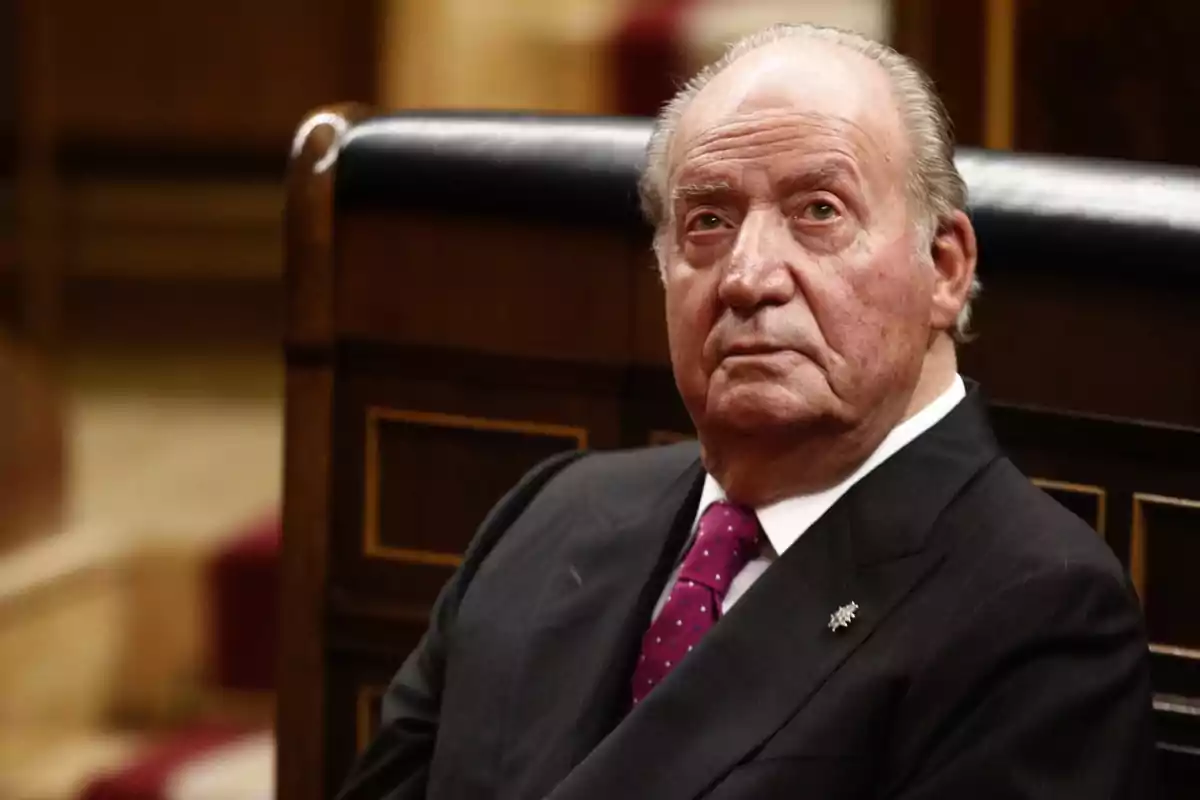
The money is said to have been transported by the sultan himself from Manama, after a visit in which he enjoyed several days of royal hospitality, hunting, and private meetings. According to the Swiss financial manager Arturo Fasana before the Geneva prosecutor's office, it was a "personal gift" from the Bahraini monarch.
This gift, more modest than the 100 million dollars from King Abdullah of Saudi Arabia in 2008, shows the relationship Juan Carlos maintained with his Gulf counterparts. Personal exchanges, cash donations, and diplomatic protection in exchange for loyalties and possible management in international contracts.
In 2019 Hamad traveled to Madrid on a private visit to personally inquire about Juan Carlos's health after a surgical intervention. The visit had no official agenda or in-depth media coverage. However, it was confirmed by diplomatic sources and the Bahraini press.
It was a gesture of personal closeness that reflected the importance the king of Bahrain placed on his relationship with the Spanish emeritus.
A 'parallel diplomacy' between monarchs
The monarchs have also shared dinners with other Arab leaders, like Mohamed bin Zayed, current president of the United Arab Emirates. With them, they share hobbies like hunting and car racing. Bahrain was even considered one of the possible destinations for the Emeritus after his departure from Spain in 2020. Although he eventually settled in Abu Dhabi.
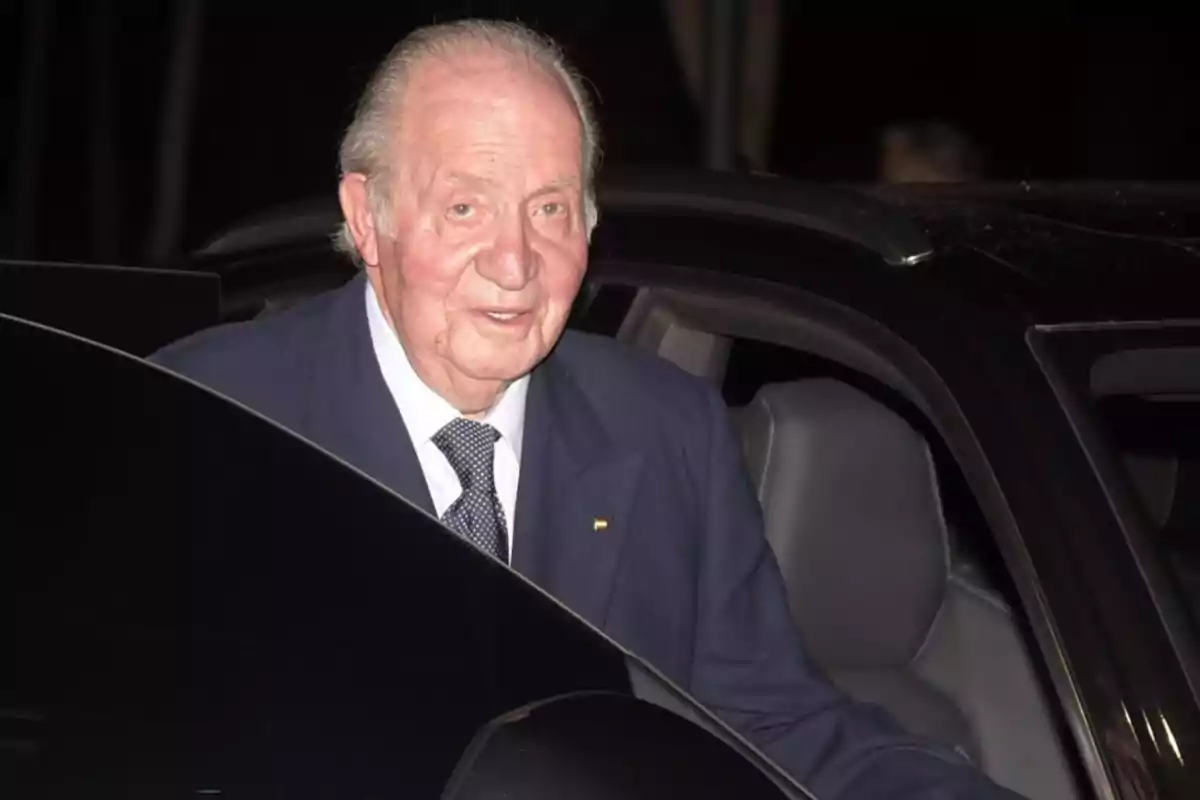
For some experts, the relationship between Hamad and Juan Carlos is a symbol of a 'parallel diplomacy' woven outside official channels. Personal ties, common hobbies, and gift exchanges reinforce a network of support that has been key for the Emeritus in his exile.
A 'survivor' sultan
Today, Hamad bin Isa al Khalifa remains on the throne. He has survived protests, international criticism, and economic crises. He keeps control of his country and a discreet but influential profile in the Gulf's balance of power.
His network of alliances and personal wealth guarantees him some leeway both inside and outside his borders. Meanwhile, he remains one of Juan Carlos I's most loyal protectors in the Middle East.
More posts: